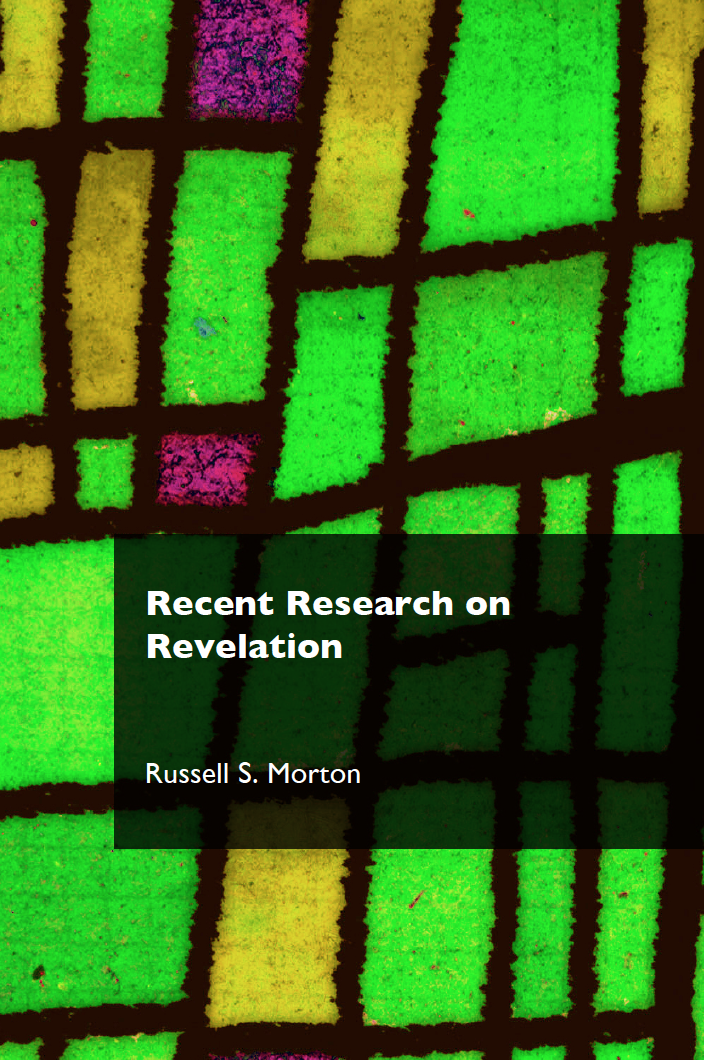Recent Research on Revelation
£60.00
Recent Research on Revelation is an ambitious attempt to comprehend the great range of scholarly views on the Apocalypse. Avoiding popular and sensational readings of Revelation, this book outlines how scholars of various stripes grapple with John’s dramatic and often disturbing book.
Perhaps no other biblical book has been the source of as much consternation to its readers as the Revelation of John of Patmos. Their distress has been accentuated by popular approaches, which often advance sensationalist visions of the future. But did John’s vision focus on the distant future, or was it directed to concerns of his own day? If it was directed to his own situation in Roman Asia Minor, what lasting significance, if any, does it have for people two thousand years after the composition of the work?
Recent Research on Revelation is an ambitious attempt to comprehend the great range of scholarly views on the Apocalypse. Avoiding popular and sensational readings of Revelation, this book outlines how scholars of various stripes grapple with John’s dramatic and often disturbing book. Beginning with a historical survey of scholarly opinion, the book examines the question of what form of literature Revelation is. It then offers an overview of various methods used to interpret the Apocalypse, ranging from traditional historical-critical analysis to feminist and postcolonial criticisms.
The Apocalypse continues to evoke strong reactions in its readers, both positive and negative, from comfort to perplexity to revulsion. At the very least, it stimulates readers’ interest to an extent not surpassed by any other New Testament book. We cannot shut our eyes to John’s vision, for it has had too much impact on who we are, whether Christian or not.
Additional information
| table of contents | 1. Introduction: An Overview of Earlier Approaches Revelation in the Early Church to Joachim of Fiore Joachim of Fiore Reformation and Post-Reformation Readings Emergence of a Critical Approach 2. Of Genre, or, Is Revelation an Apocalypse? Earlier Efforts at a Definition Response of the Apocalyptic Group of the SBL Genres Project Toward a More Satisfactory Definition 3. The Apocalypse against its Ancient Environment: Near Eastern, Jewish and Greco-Roman Influences Revelation in a History-of-Religions or Tradition-Historical Perspective Adela Yarbro Collins David E. Aune Gregory Stevenson Franz Tóth Christopher A. Frilingos Colin Hemer Steven J. Friesen Bruce J. Malina Jacques M. Chevalier Sean Michael Ryan Rodney Lawrence Thomas Revelation Understood in Terms of its Christian Hebrew Bible and Jewish Roots Elisabeth Schüssler Fiorenza G.K. Beale J ean-Pierre Ruiz Jan Fekkes III Steve Moyise Jon Paulien Marko Jauhiainen Alan S. Bandy Loren T. Stuckenbruck Pilchan Lee David A. Mathewson Håken Ulfgard 4. Literary Perspectives on Revelation Literary Analyses David L. Barr Barbara Rossing James L. Resseguie Thomas Johann Bauer Jean Delorme and Isabelle Donegani Antoninus King Wai Siew David A. deSilva Robert M. Royalty W. Gordon Campbell Michael Koch 5. Theological and Pacifistic Readings of Revelation Theological Readings of Revelation Richard Bauckham Joseph L. Mangina Craig S. Keener Felise Tavo Richard B. Hayes et al. Pacifist Readings of the Apocalypse Mark Bredin J. Nelson Kraybill Matthew Streett Loren L. Johns 6. ‘Ideological’ Readings of the Apocalypse: Speaking Self-Consciously from Social Location Feminist Readings Tina Pippin Adela Yarbro Collins Catherine Keller Lynn R. Huber Stephen D. Moore Elisabeth Schüssler Fiorenza Political Readings of Revelation: Reading from the Margins Allan A. Boesak Pablo Richard Brian Blount David A. Sánchez Wes Howard-Brook and Anthony Gwyther Greg Carey David Rhoads et al. |
|---|


Reviews
There are no reviews yet.